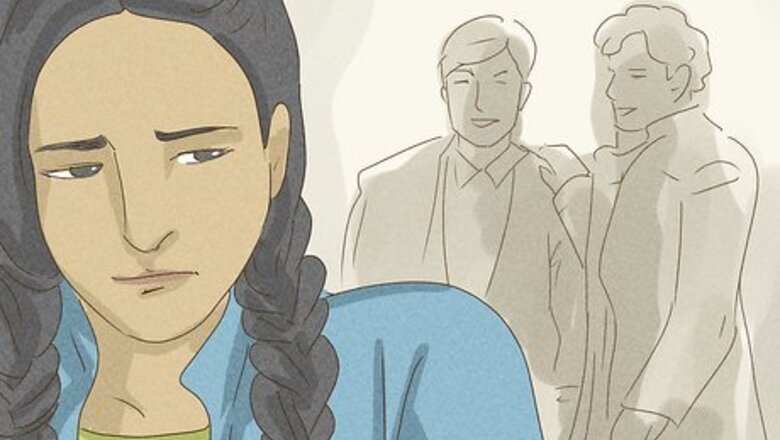
views
Responding to Blatant Racism
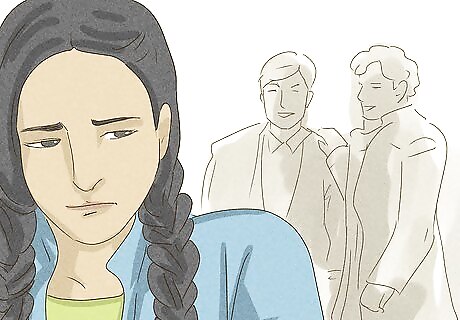
Ignore the person and their comment. One tried and true approach to dealing with racists is not dealing with them. Don’t give the person any more of your attention. Keep walking, working, or doing whatever you were doing, and they should hopefully get the message. This can be really tough to do, especially if they’ve made a super inflammatory comment. Try your best to be the bigger person, but don’t feel too bad if you react with anger or frustration. This is the best way to deal with racism that comes from a stranger or if you’re by yourself.

Get to a safe place. While some people make racist remarks simply out of ignorance, others do so out of hatred. If at any time you don’t feel safe, ignoring them is the best bet. Don’t say anything, and get yourself to a safe place where others are present, such as a restaurant or public building. Racists and bullies tend to back down in front of witnesses. If not, then these witnesses can also defend you, get help, and back up your story. Your safety is the number one factor in this situation. Above all else, get yourself somewhere safe.

Report the person to a superior. If a racial remark happens at your school or work, you can tell someone in charge. This ensures that others in authority are aware of potential racists. It also helps you to create a record of the incident in case there are issues in the future. You might go to a teacher, guidance counselor, or supervisor and say, "I was called a racist name and I'd like to report it." Tell the person, in detail, what happened. If you don’t work or go to school with the person (if they’re your neighbor or acquaintance), you may have to go straight to reporting them to the authorities.
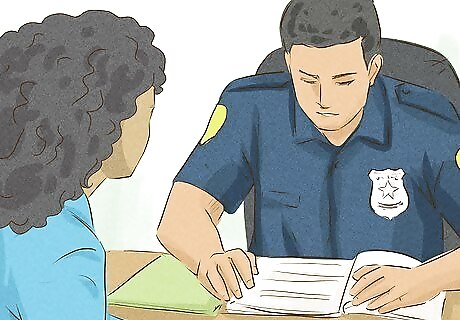
Take legal action if you need to. If the person who called you a racist name is someone in authority (such as an employer, business owner, or teacher), you may need to take legal action due to discrimination. Or, if your school or workplace won’t discipline your harasser, you can report them to the higher authorities as well. Look into your local harassment and hate crime laws to see where you should report the abuse (usually, you can make a police report). It may seem scary or difficult to report someone to the police, but if you’ve tried everything else, it may be the only way to get them to stop.
Dealing with Unintentional Racism

Ask the person what they meant by their comment. Asking a pointed question can make the person think a little deeper about what they just said. Sometimes, people speak without thinking, and this can make them pause long enough to realize that their comment wasn’t okay. Try saying something like, “What did you mean when you called me that?” Or, “Could you explain why you just called me ______?”

Explain that the comment is inappropriate. In some situations, particularly if the person is close to you or if they may be repeating what they’ve heard elsewhere, it can help to educate them. If they are willing to listen, let them know that their comment was hurtful, racist, and inappropriate. You can say some things like: "Hey, please don't make comments like that." "I'm guessing you aren't aware that that word has very racist implications. Please don't use it." "I'm not okay with you talking about my race/skin like that." "I don't know if you're aware how hurtful that comment that you just made is."

Get other people on your side. If you’re in a group of coworkers or peers, ask someone to back you up in the conversation. You don’t have to attack the person who made a racist comment, but you can both work to explain that it wasn’t okay and why they shouldn’t have said it. There’s power in numbers, and having someone on your side feels less scary than going it alone. You can approach another person by saying, “Hey, I’ve been dealing with some comments from our coworker that aren’t okay, and they don’t seem to understand why. Could you help me out here?” Again, the goal is not to attack anyone here, it’s simply to get more people to explain that racist name-calling isn’t okay.

Share some background information, if you’d like to. If the person still isn’t getting why what they said isn’t okay, you can educate them on the history of the word to let them know how offensive it is. Remember that it’s not your job to educate other people on racism and why it’s bad, so don’t feel like you have to do this. Try something like, “That word has a very negative history, and when you say it, it reinforces stereotypes and racism.” If the person is willing to accept your explanation, they should change their behavior. However, some people might get defensive and won’t be open to change.
Practicing Self-Care

Feel your emotions, whatever they may be. You might feel angry, scared, embarrassed, hurt, or all of the above after getting called a racist name, and that’s okay. Processing and feeling your emotions is an important part of moving on, and you should never try to shove those down. Try to save your emotions until after you’ve confronted the racist name-caller. It pays to be rational in the moment, but you can be sad or angry at home. If you’re having trouble processing your emotions, try writing them down in a journal.

Recognize your own value. When you hear negative things about yourself, it can be easy to repeat them inside your own mind. Try to remember how great you are by listing your positive qualities and attributes. You can do it in your head or write them on a piece of paper to really solidify them in your mind. This can feel a little silly, but it’s important to change the narrative in your own mind.
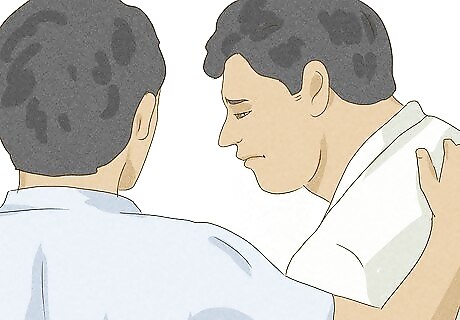
Lean on your support system. Your friends, family members, and neighbors can be pillars of support for you as you deal with a tough situation. Try calling up a friend, going over to a family member’s house, or chatting with a neighbor about what you’re dealing with. You don’t have to get specific if you don’t want to, but sometimes they can offer advice (especially if they’ve ever dealt with the same thing before). Talking to loved ones can also be a nice distraction to keep your mind off of things.
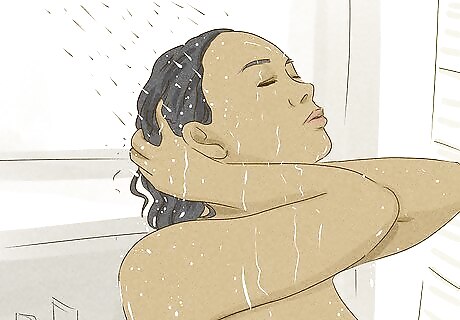
Practice relaxation techniques and activities. Defending yourself against racism can be exhausting. Try to make time to do things that you enjoy to lower your stress levels, like yoga, meditation, hiking, exercising, or reading a book. Self-care looks different for everyone, and you know yourself best, so pick things that you’ll love. Taking a bath, listening to music, eating a decadent meal, or making a fancy cocktail are also good ways to unwind and relax.

Talk to a mental health professional if you need to. Dealing with racist name-calling is no easy feat, and it can leave your mental health in a state of unrest. If you can, reach out to a mental health professional to get some guidance on how to take care of yourself as you deal with the issue at hand. If you are still in school, you may be able to go to a mental health care professional through your school administration.




















Comments
0 comment